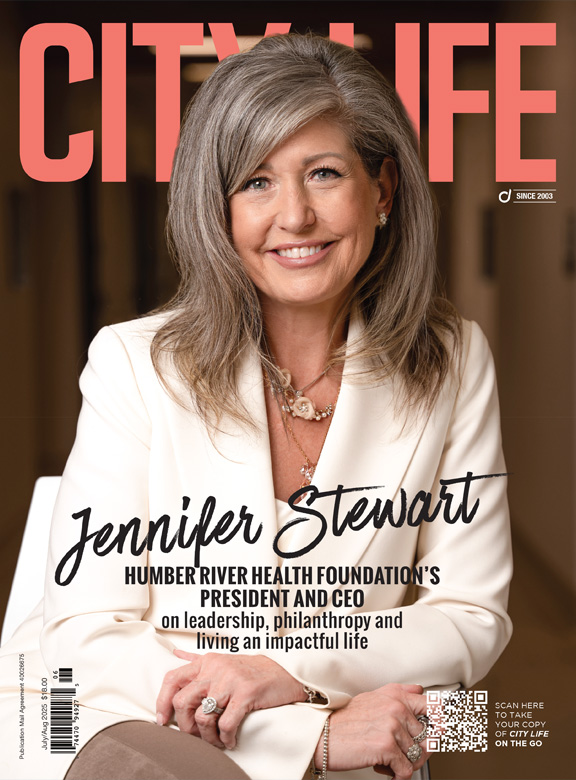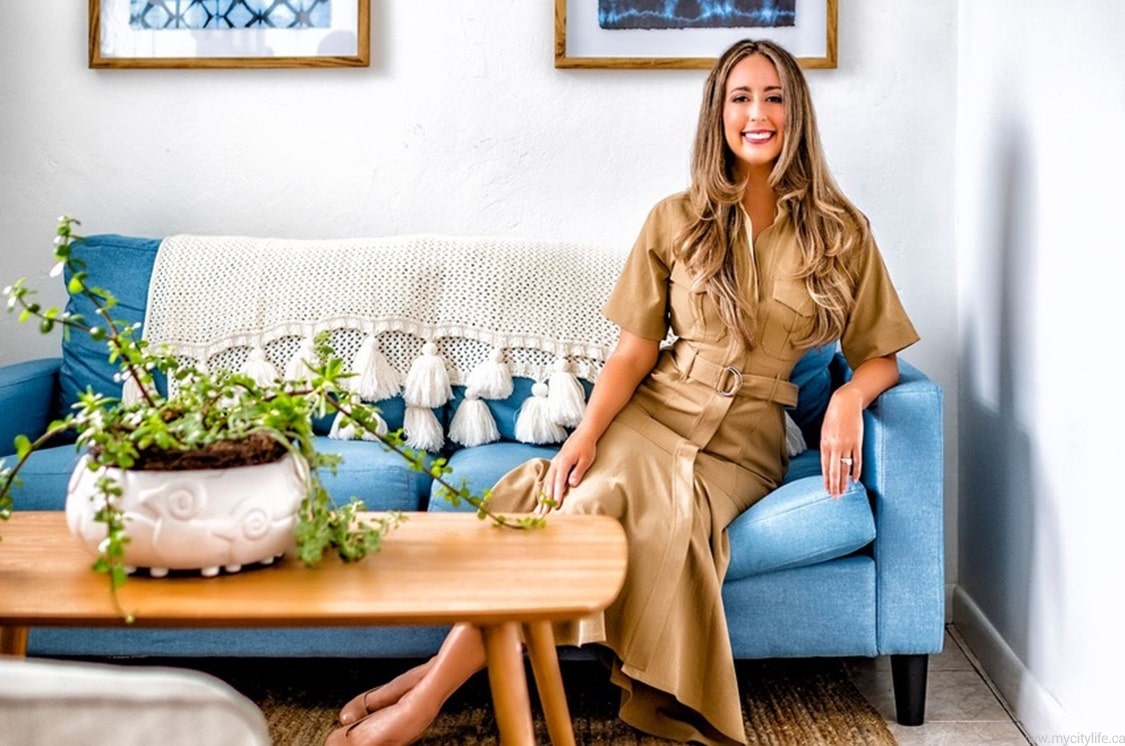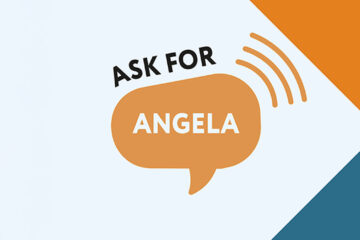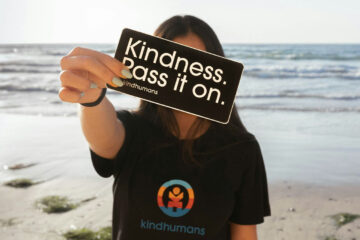Toxic Positivity With Whitney Goodman
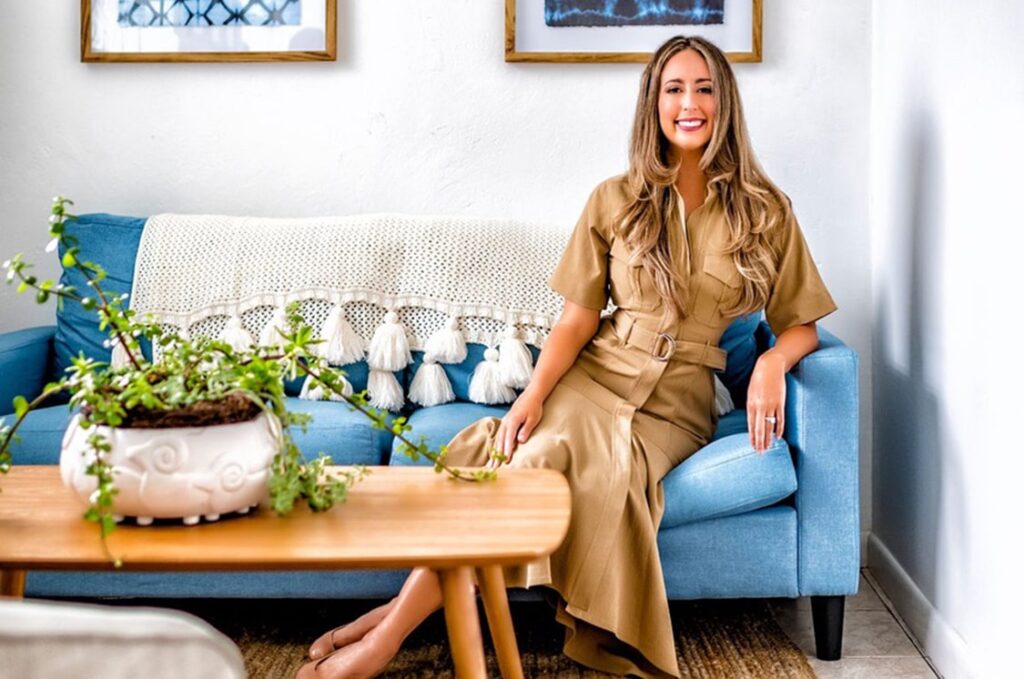
In a world obsessed with positive thinking, you may be guilty of perpetuating toxic positivity in your life. Thanks to psychotherapist Whitney Goodman, we’re learning how to keep it real in a world that’s conditioned not to.
Have you ever felt the pressure to always be positive? When the world is constantly bombarded with messages like “good vibes only” and “always see the glass half full,” it’s hard not to.
To help us understand the dark side of always looking on the bright side, psychotherapist Whitney Goodman is radically honest in sharing her insights on toxic positivity and how it affects our lives. With over 500,000 followers on Instagram @sitwithwhit, and with her new book, Toxic Positivity, Goodman is helping transform the way we speak about mental health, empowering us to show up authentically in the world. As she puts it, “Toxic positivity is ultimately offering someone a very simple solution for a complicated problem that we know nothing about.”
We talked with the psychotherapist, who was at her home in Tampa, which she shares with her husband, their son and two dogs, Luna and Charlie.
Q: What makes you so passionate about what you do?
A: It’s interesting to talk to people and learn more about why they think the way they think; why they made those decisions. I’m never really bored doing this job because there’s always a new story or something different to learn from someone.
Q: What would you consider to be your expertise in the field?
A: I’m a licensed marriage and family therapist, so I’m trained from a systems perspective. I like to look a lot at how our family relationships and just our relationships with different systems in the world impact how we think and how we operate. The majority of people that I work with are typically having some sort of family issue, relationship issue. I also work with quite a number of people that are dealing with chronic health issues, and how that’s impacting their relationships or their life.
Q: Do you feel that the work you do has helped you in your own life?
A: For sure. I mean, I think there is definitely a feeling for most people that become therapists that Oh, I’m gonna figure myself out and I’m going to be able to use this on everyone I know. And in some aspects, yes, that’s true. You get more of an intellectual understanding, and it’s helpful. But it certainly doesn’t replace the actual act of doing the work on yourself and going through life.
Q: Can you share a bit about your private therapy practice?
A: I’m totally online now. I closed my regular office during the pandemic and went virtual. I mainly work with 25- to 35-year-olds, and they all want to be online. So I just never went back to the office.
Q: If you’re dealing with heavy subjects, how do you deal with the aftermath in terms of your own well-being? Do you have a therapist?
A: I do. I’ve been in and out of therapy all the time, you know, depending on what’s going on in my life. I think the biggest thing I’ve noticed as I get further along in my career is that I’ve gotten a lot better about having really strong boundaries around my work.
Q: Can you speak about how social media has changed your field in general and how you’re utilizing it to spread information?
A: I started my Instagram to promote my private practice in early 2018. People then were like, “Therapists can’t be online,” and people were telling me this was the stupidest thing I had ever done. And now every therapist is on the Internet. It’s become such a big part of my work, to be able to disseminate information like that. I have seen social media open up conversations about mental health, get people into therapy, normalize how people are feeling. I mostly think it’s been a net positive thing.
Q: Your new book is Toxic Positivity. For those who aren’t aware, how would you describe toxic positivity?
A: Toxic positivity is ultimately offering someone a very simple solution for a complicated problem that we know nothing about. And it’s like those platitudes that you think of like everything will be fine; it all happens for a reason and using those whenever someone is struggling with something or going through a hard time.
Q: Do you think that there’s any correlation between toxic positivity and the age of instant gratification?
A: I think in some ways, yes. It’s like we just want to put a bow on everything and make it good. We’re also told, especially in the United States, you grew up with this messaging of I just want you to be happy and for my kids to be happy. Happiness is always the goal. And so it makes sense that we would constantly want to be doing that for our friends and family and making sure that they’re positive and happy.
Q: How did you do your research and what did it show? How were you able to quantify what you found?
A: So, I read a lot of positive-thinking literature. So, the secret of the law of attraction all that stuff was part of my research. And then also just looking at a lot of the actual research studies that have been done on emotional suppression and positivity, and how that helps people with things like problem-solving and creativity. And we find that it’s not actually that helpful in those situations.
Q: What are some of your biggest pet peeves when it comes to positive thinking and what comes out of there?
A: A lot of it is very individualistic, in the sense that it’s like, “Change your thoughts, change your life.” And we know that it’s not that simple. You know, there are so many social determinants of health and well-being that are not totally within the control of the individual. I mean, even genetics. We can’t control everything that’s going to happen to us. And a lot of these books propose that if you get cancer, it’s your fault because you were thinking it. And we know that that’s not scientifically sound in any way.
Q: Online therapy has boomed since the pandemic as well and it’s almost not normal to not have a therapist now. What’s your take on that?
A: There’s certainly a world where you could become over-reliant on a therapist, and maybe have a relationship that doesn’t have great boundaries or where you don’t believe that you can empower yourself to do things on your own. I think it’s really important for people to think about this: is therapy helping me become more of the person I want to be in helping me to have more agency and independence in my life? Or is it making me more dependent on someone else to make decisions for me? And I think that’s going to depend on each individual person and what they’re going through at that time.
Q: If you weren’t a psychotherapist, what do you think you would be doing?
A: I think I would have liked to probably be a journalist or a talk-show host. Anything where I could get to talk to people all day!
Q: What’s your definition of happiness?
A: I think it’s living a life that’s in line with your values and knowing what’s important to you. Also knowing that happiness is just a feeling that you’re going to experience sometimes, not all the time.
